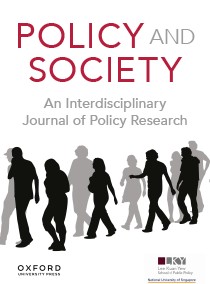公私伙伴关系在全球卫生治理中的权威和作用日益增强
IF 5.7
1区 社会学
Q1 POLITICAL SCIENCE
引用次数: 1
摘要
全球公私伙伴关系(PPPs)在应对全球挑战的努力中已变得十分突出,尤其是在卫生领域。在学术文献中,全球公私合作伙伴关系被概念化为自愿性公私合作的舞台,而不是全球治理的媒介。本文对这一观点提出质疑,认为高度制度化的伙伴关系中的一个子类已经发展成为跨国官僚机构,与国际组织一样,可以利用其行政能力行使代理权,并随着时间的推移获得和巩固权威。为了证实这一论点,我深入分析了在 "获取 Covid-19 工具加速器"(ACT-A)中发挥主导作用的五个全球卫生伙伴关系,该倡议旨在协调全球应对 Covid-19 的行动。基于对 ACT-A 伙伴关系--Gavi、疫苗联盟、全球抗击艾滋病、结核病和疟疾基金、流行病防备创新联盟、Unitaid 和创新诊断基金会--的大量文件审查和分析,我展示了这些伙伴关系在大流行期间的领导作用是如何从长达十年的伙伴关系机构建设中产生的。这些组织获得了行政管理能力,使其能够通过以下三个相互关联的战略,提高其在捐助者、董事会和其他外部行为者面前的权威:(a) 发展更大的财务自主权;(b) 扩大其任务范围(包括大流行病的准备和应对);(c) 建立伙伴关系之间的合作和在其他论坛的相互代表。我的分析表明,今后的研究需要将高度制度化的公私伙伴关系视为全球治理的推动者,并从经验和理论上探讨其权威上升的后果。本文章由计算机程序翻译,如有差异,请以英文原文为准。
The rising authority and agency of public–private partnerships in global health governance
Global public–private partnerships (PPPs) have become prominent in efforts to address global challenges, particularly in the health field. In the scholarly literature, global PPPs have been conceptualized as arenas for voluntary public–private cooperation rather than agents of global governance. This paper challenges this approach, arguing that a sub-class of highly institutionalized partnerships have developed into transnational bureaucracies that, much like international organizations, can draw from their administrative capacities to exercise agency and gain and consolidate authority over time. To substantiate this argument, I present an in-depth analysis of five global health partnerships that played a leading role in the Access to Covid-19 Tools Accelerator (ACT-A), the initiative that sought to coordinate the global response to covid-19. Based on extensive document review and analysis of the ACT-A PPPs —Gavi, the Vaccine Alliance, The Global Fund to Fight AIDS, Tuberculosis and Malaria, The Coalition for Epidemic Preparedness Innovation, Unitaid, and The Foundation for Innovative New Diagnostics — I show how these partnerships’ leadership role during the pandemic emerged from a decade long build-up of PPP agency. These organizations gained administrative capacities that enabled them to increase their authority vis-à-vis their donors, boards, and other external actors through three interlinked strategies: (a) developing greater financial autonomy; (b) expanding their mandates (including toward pandemic preparedness and response); and (c) establishing inter-partnership cooperation and mutual representation to other forums. My analysis suggests the need for future research to consider highly institutionalized PPPs as agents of global governance and to explore empirically and theoretically the consequences of their rising authority.
求助全文
通过发布文献求助,成功后即可免费获取论文全文。
去求助
来源期刊

Policy and Society
Multiple-
CiteScore
18.00
自引率
6.50%
发文量
43
审稿时长
30 weeks
期刊介绍:
Policy and Society is a prominent international open-access journal publishing peer-reviewed research on critical issues in policy theory and practice across local, national, and international levels. The journal seeks to comprehend the origin, functioning, and implications of policies within broader political, social, and economic contexts. It publishes themed issues regularly and, starting in 2023, will also feature non-themed individual submissions.
 求助内容:
求助内容: 应助结果提醒方式:
应助结果提醒方式:


